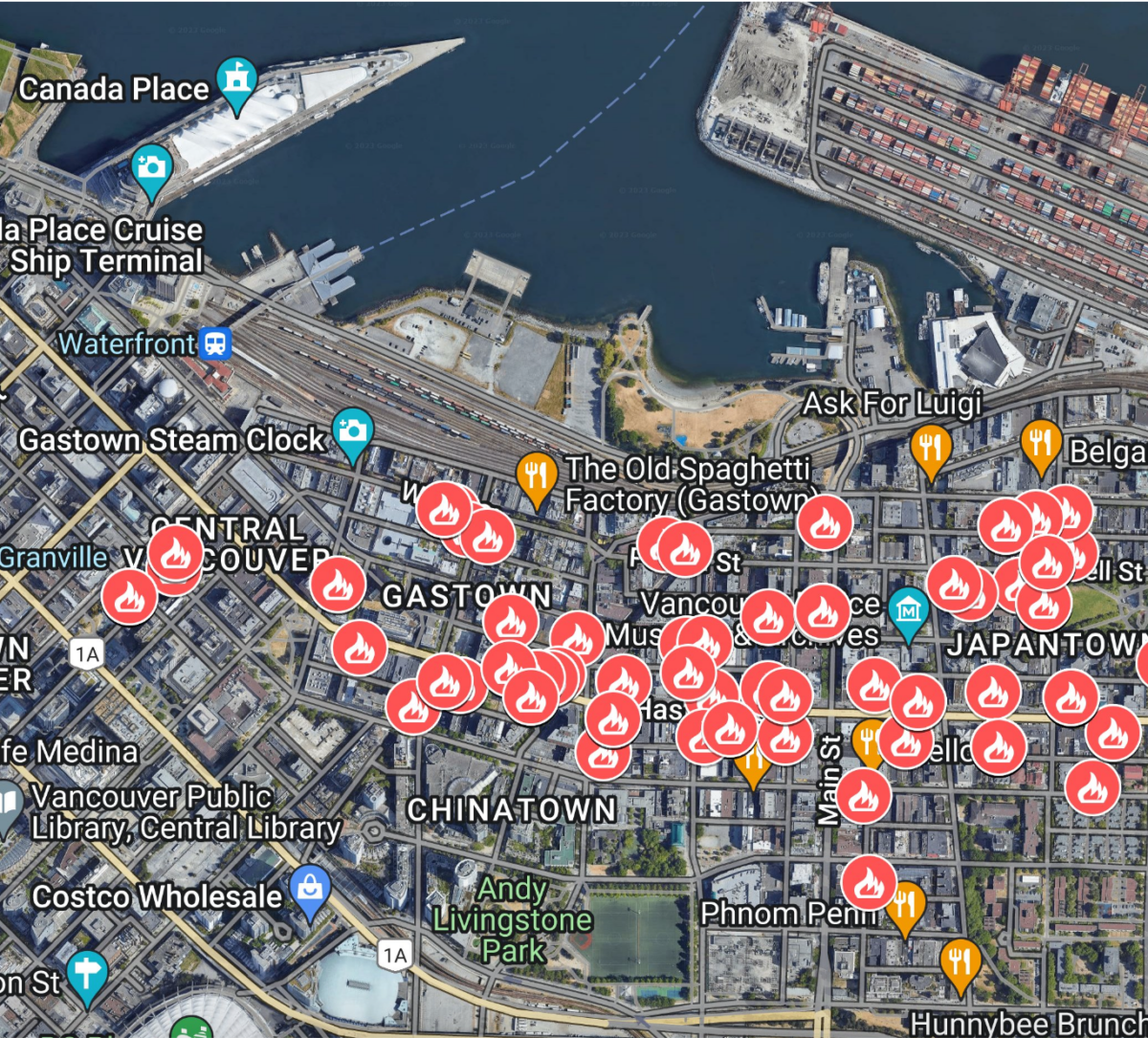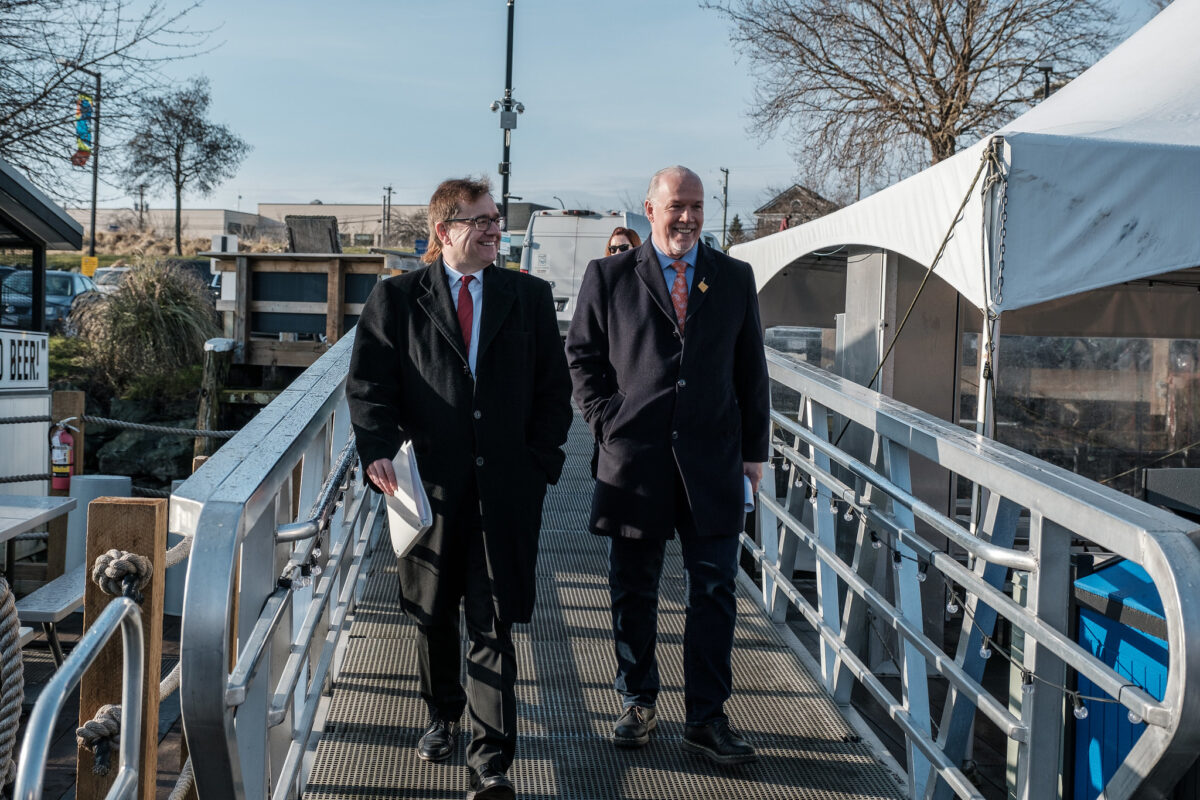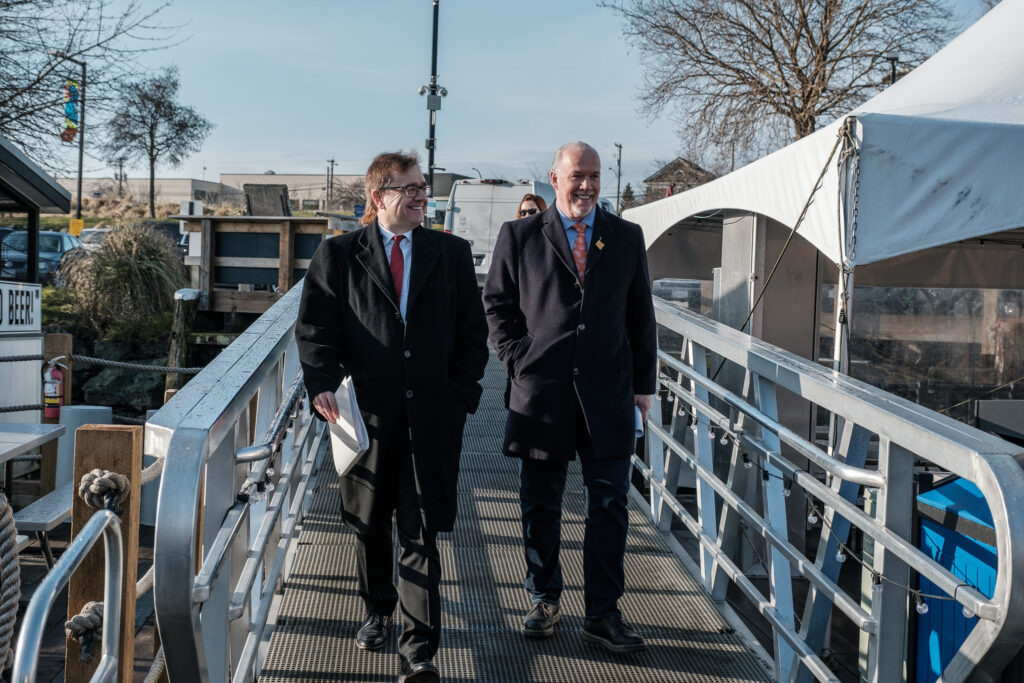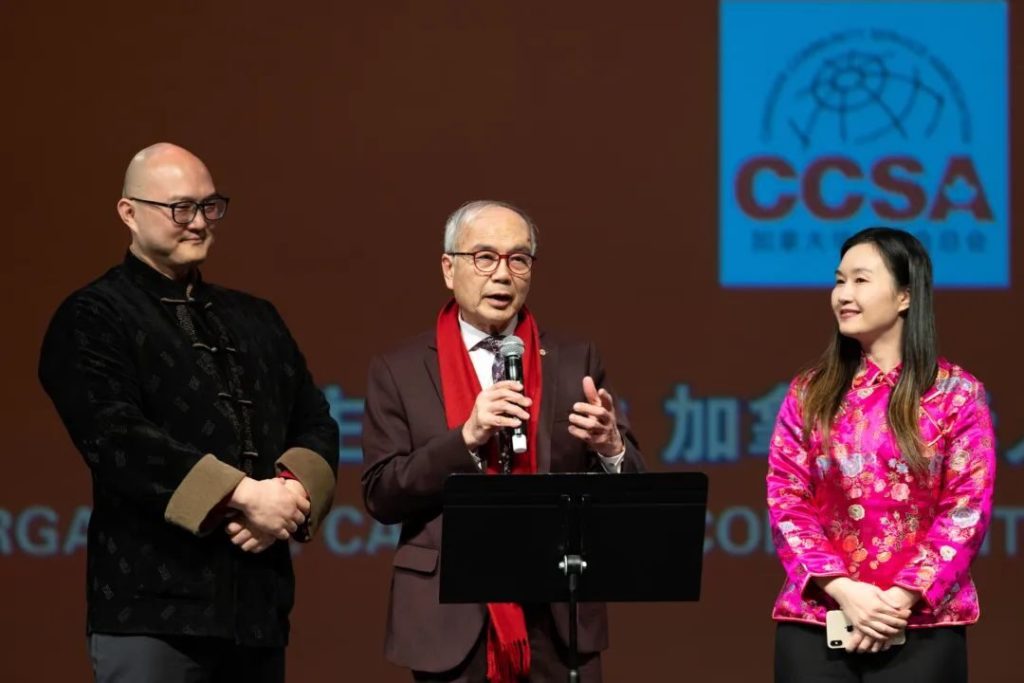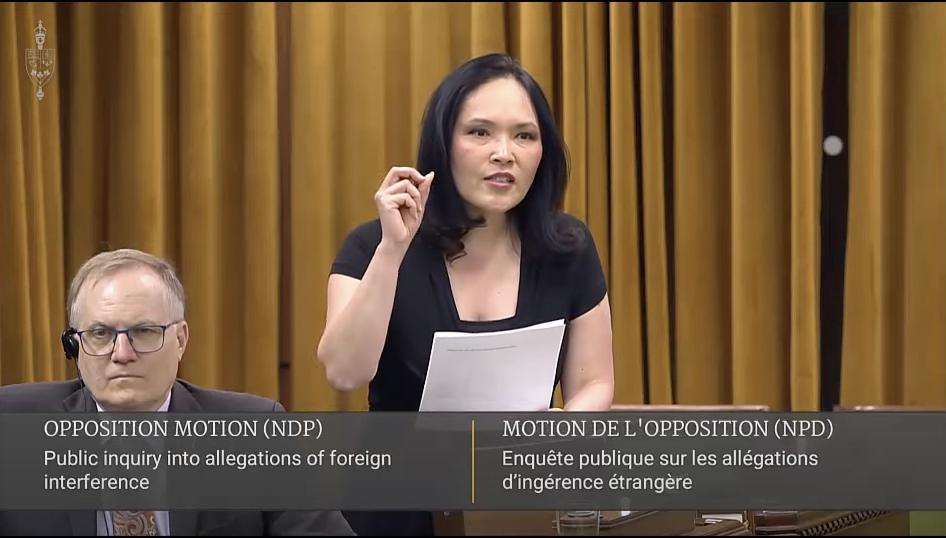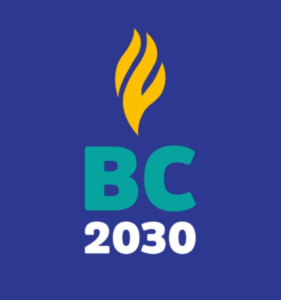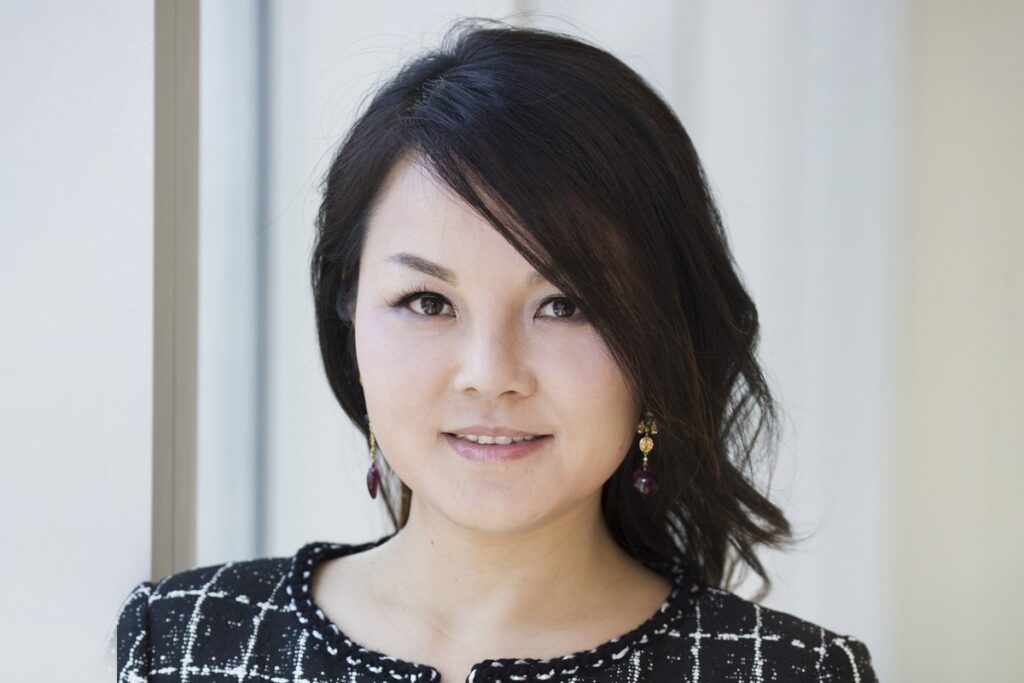Mapping Vancouver’s single-room occupancy fires of 2022
Bob Mackin
What:
A map of 214 fire calls to single-room occupancy buildings in Vancouver, from Jan. 1, 2022 to Dec. 8, 2022. The log, obtained via freedom of information from Vancouver Fire and Rescue Services (VFRS), lists the calls by date, cause, location, number of deaths or injuries and approximate cost of damage.
Human cost:
During the period, there were 10 fire-related injuries and four fire-related fatalities.
Two injuries were reported in a Feb. 17, 2022 fire at the Astoria Hotel, 769 E. Hastings, when a battery rectifier ignited due to ignorance of hazard. A similar incident happened June 11, 2022 at the Hotel Empress, 235 E. Hastings, but one person died.
Two deaths resulted from the April 11, 2022 Winters Hotel blaze on 203 Abbott in Gastown.
The other death was May 5, 2022 at the Patricia Hotel, 403 E. Hastings, which originated in a portable cooking unit.
Deadliest blaze:
The four-alarm fire at the 115-year-old Winters Hotel was the worst of 2022’s SRO fires.
The bodies of residents Mary Ann Garlow and Dennis Guay were discovered more than a week-and-a-half after the inferno. The building was demolished and the disaster now the subject of an application for a class-action lawsuit against city hall and B.C. Housing-funded property manager Atira.
It was a tragedy waiting to happen. On April 8, 2022, after a minor fire, VFRS had ordered Winters Hotel management to immediately hire a qualified technician to service the fire alarm and sprinkler and provide 24-hour fire watch until the system could be reset and fully functional.
In the months that followed the tragedy, the Downtown Eastside went from bad to worse. Sidewalks on both sides of East Hastings filled with tents containing 200 people, many with addictions and/or mental illness. Many of them refused to live inside buildings similar to the Winters Hotel, even if rooms were available.
On July 24, 2022, fire chief Karen Fry issued an extraordinary order to remove tents and structures from congested sidewalks, so that firefighters could access buildings in case of emergency. Full enforcement did not happen until April 5 of this year, when Vancouver Police officers and civic crews removed tents and belongings.
Most-expensive damage:
A total $90.34 million in estimated fire losses during the year. Most of that from two devastating blazes.
The Winters Hotel disaster estimate was $68.7 million. That was due to an open flame.
The Powell and Princess fire, at 568 Powell, on Aug. 22, 2022, was $20 million. That was blamed on smoker’s material.
A July 17, 2022 fire caused $350,000 damage to 566 Powell, due to smoker’s material. The June 11, 2022 fire at 235 E. Hastings caused $240,000 damage.
There were three fires worth $100,000: 431 E. Pender on Jan. 3, 2022 (open flame); 936 Granville on Aug. 6, 2022 (incendiary fire); and 143 Dunlevy on Sept. 24, 2022 (cannot be determined).
Igniting objects:
Leading causes were open flame (41) and smoker’s material, which includes matches, lighters, torches, candles, cigarettes and drug-related materials (19).
Acts or omissions:
In 48 cases, suspected impairment, use of alcohol, drugs or medication was involved. Followed by ignorance of hazard (21) and incendiary (or intentionally lit) fire (14).
Most fire calls:
There were 15 addresses with four or more fire calls.
The Lookout Housing and Health Society-managed Tamura House at 225 Dunlevy topped the list at 16.
Atira’s Sereena’s Housing for Women at 143 Dunlevy and Hotel Canada at 518 Richards had seven fire calls each. There were six each at the PHS flagship Portland Hotel (20 W. Hastings) and Tellier Tower (16 E. Hastings), Brandiz Hotel (122 E. Hastings) and the Colonial Hotel (122 Water).
Lookout director of development Megan Kriger said the 52-year-old charity has met with the VFRS and City of Vancouver to discuss ways to reduce the fire risk. Kriger said Lookout conducts regular site inspections to ensure hallways are clear and that there are “more than the required number of fire extinguishers.” Blow torch lighters and lithium battery chargers are no longer allowed inside units.
“Lookout sites have fire warden programs where residents are trained and certified by the Vancouver fire department,” Kriger said. “Increased education has been provided around safer smoking options, including how to properly put out and dispose of cigarettes, eliminating dry grass and flammables during heat season.”
Kriger said kitchen fires are caused by residents “not watching food while it’s being cooked” and the society is also providing education around cooking safety and healthier options to reduce fats or oils.
“Lookout also promotes the use of community kitchens onsite where residents can support each other and share the responsibility of cooking together,” she said.
Records falling:
VFRS revealed Aug. 8 that the first half of 2023 was a record-setter. Fire responses are up 31% year-over-year and more than a quarter of fires were deliberately lit. The leading cause of fires (57%) is carelessly discarded smokers’ materials.
Four people died in fires from January to June. Three involved smokers’ materials and two of the victims were suspected to be impaired.
–with technical assistance from Stephen Bohus
Support theBreaker.news for as low as $2 a month on Patreon. Find out how. Click here.
Bob Mackin What: A map of 214 fire calls






